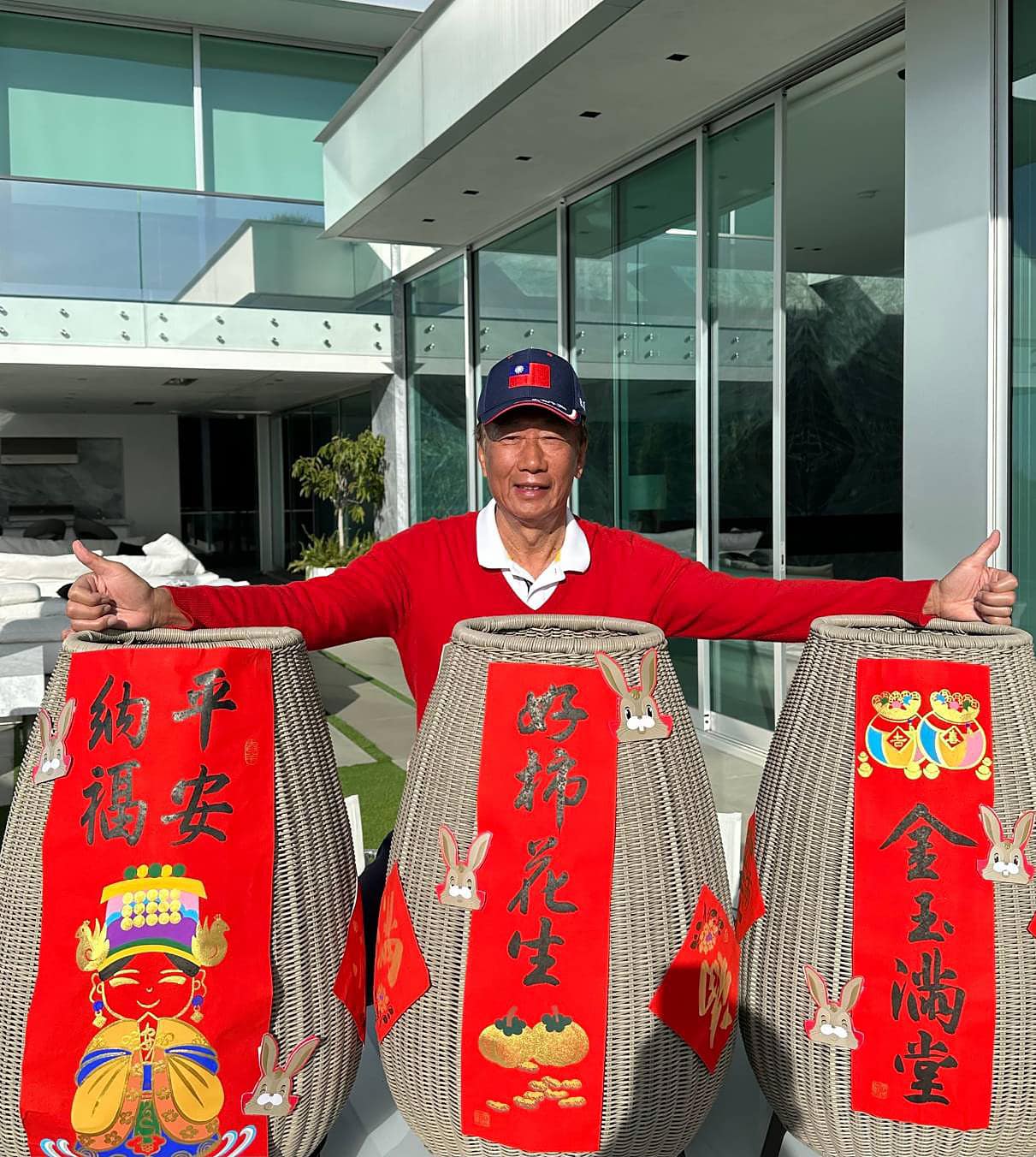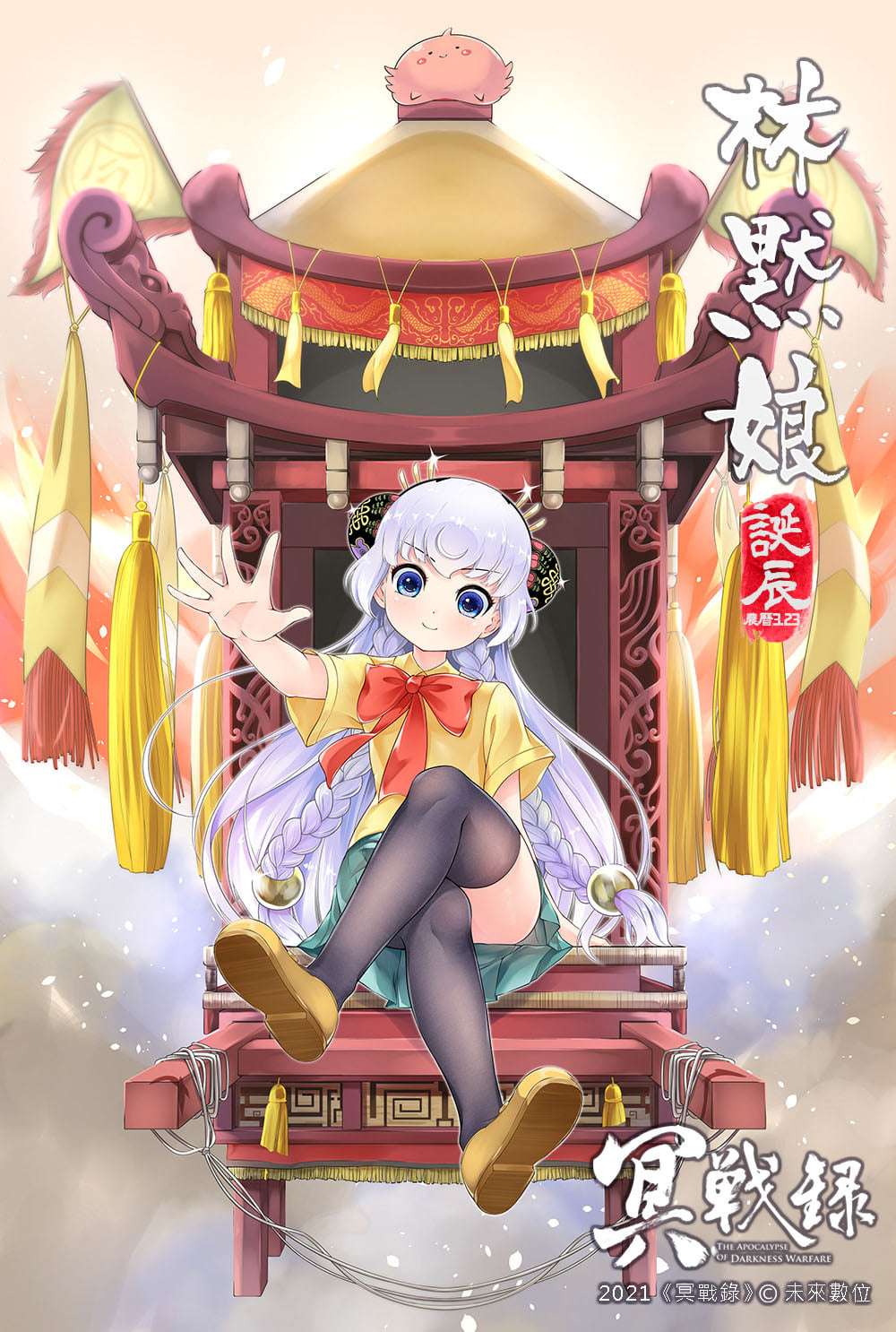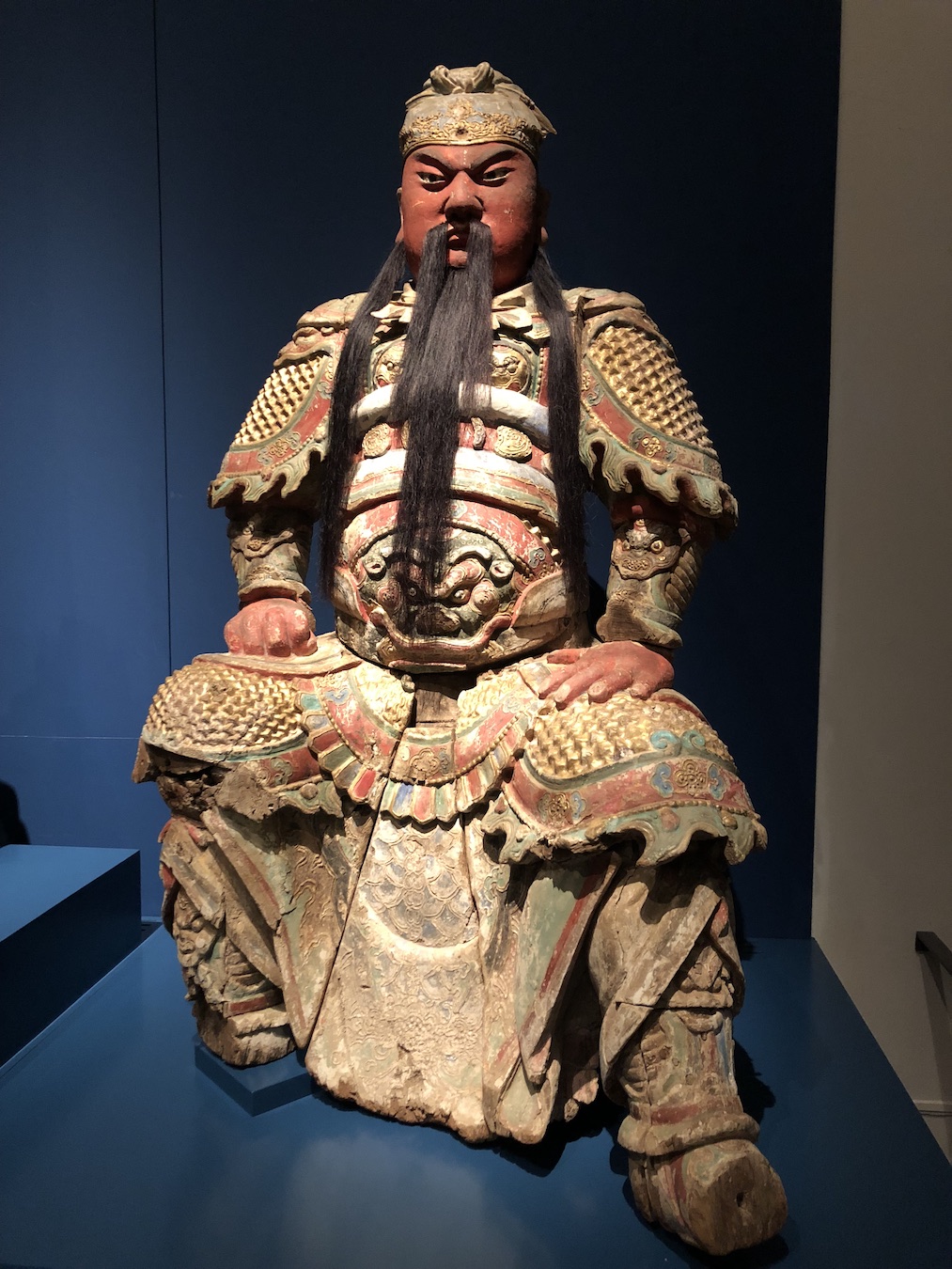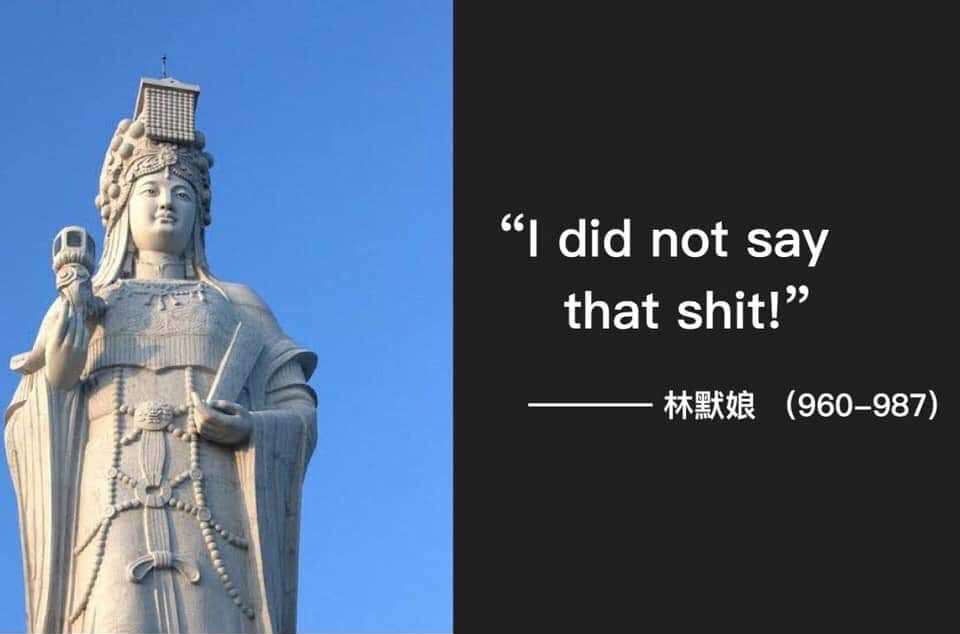by Brian Hioe
語言:
English
Photo Credit: Internet Meme
FOXCONN FOUNDER Terry Gou is at it again. After having announced his 2020 presidential bid with the claim that Mazu, Taiwan’s patron sea goddess, came to him in a dream, Gou claimed earlier in the month that Mazu and war god Guanyu had expressed approval of another presidential run by him. Gou claimed this after visiting temples over the Lunar New Year to ask the gods about his potential run.
Speculation is on as to whether he will run for president, then. For now, Gou is remaining strategically ambiguous on the matter, though he did conduct a meeting with former KMT majority speaker Wang Jinpyng that stoked speculation. Gou previously claimed that whether or not he would run for president was dependent on the wishes of Taiwan’s 23 million residents.

Terry Gou. Photo credit: Terry Gou/Facebook
Much will depend on whether the KMT again makes an exception to its internal regulations, as it did for 2020 presidential elections, to allow Gou to rejoin the party and contend in its presidential primaries. Gou left the party too soon to be allowed to join presidential primaries unless the party makes an exception for him. With current chair Eric Chu also thought to harbor presidential ambitions, Chu either risks being seen as petty by not allowing Gou to join the primaries, or he opens the way to Gou challenging him.
Gou’s appeal to the gods did not draw the same headlines as the first time he made this claim. The claim that Mazu backed his run was seen as outlandish at the time. However, ironically, recently deceased Buddhist master Hsing Yun, the founder of Fo Guang Shan, had previously deemed Tsai Ing-wen to be an incarnation of Mazu. This occurred despite Hsing Yun’s historical support of the pan-Blue camp. So, perhaps it was Tsai that came to Gou in a dream and told him to run, so that he would divide the pan-Blue vote?

The anime Mazu of Ximending. Photo credit: 冥戰錄/Facebook
Since there are many iterations of Mazu worshiped across Taiwan, at the time, there were also many jokes at the time questioning which Mazu was that backed Gou. Different iterations of Mazu can even have different political affiliations–of the two major Mazu pilgrimages in Taiwan, the Baishatun Mazu pilgrimage is more pan-Green, while the Dajia Mazu pilgrimage is more pan-Blue. The Dajia Mazu pilgrimage is run by the Yen family, a political dynasty that has long had links to electoral politics, gangsters, and organized religion. Perhaps it was the anime Mazu in Ximending?
Indeed, this time around, if Gou seeks the KMT’s presidential nomination or perhaps runs as an independent, he would be entering what is likely to be a very crowded race. Divides among the pan-Blue camp could potentially contribute again to a DPP victory.
Having entered the 2020 race in such a distinctive manner, ironically, now Gou probably cannot run except after claiming to have the approval of Mazu. Yet Gou’s additional claim this time to have the backing of war god Guanyu is also significant.
For one, regional tensions are on the rise, with an uptick in Chinese military exercises directed at Taiwan. Like other members of the pan-Blue camp, Gou has sought to put the blame for this on the Tsai administration, depicting the Tsai administration as warmongering and provoking China rather than the other way around. But Gou has often been more aware of the pan-Blue camp’s image problems because it is perceived as uncritically pro-China and pro-unification.

Ming dynasty statue of Guan Yu. Photo credit:
As such, touting support from the war god may be a way to counterbalance the KMT’s pro-China image, since Taiwan’s most likely military opponent would, after all, be China. Gou’s previous run also leaned into nostalgia for the authoritarian period and drew on groups that benefited during the authoritarian period, such as members of the police, veterans, and others, as bases of support. Appealing to Guanyu, too, may also be in the hopes of attracting groups from police, veterans, and other demographics that he is the patron god of.
Certainly, it was unlikely for Gou to claim support from Yuelao, the god of love, or Ji Gong, the drunken monk deity. But it appears that claiming the support of deities is now a recurring trope of Taiwanese presidential elections, at least where Terry Gou is concerned.



